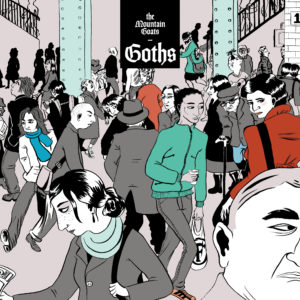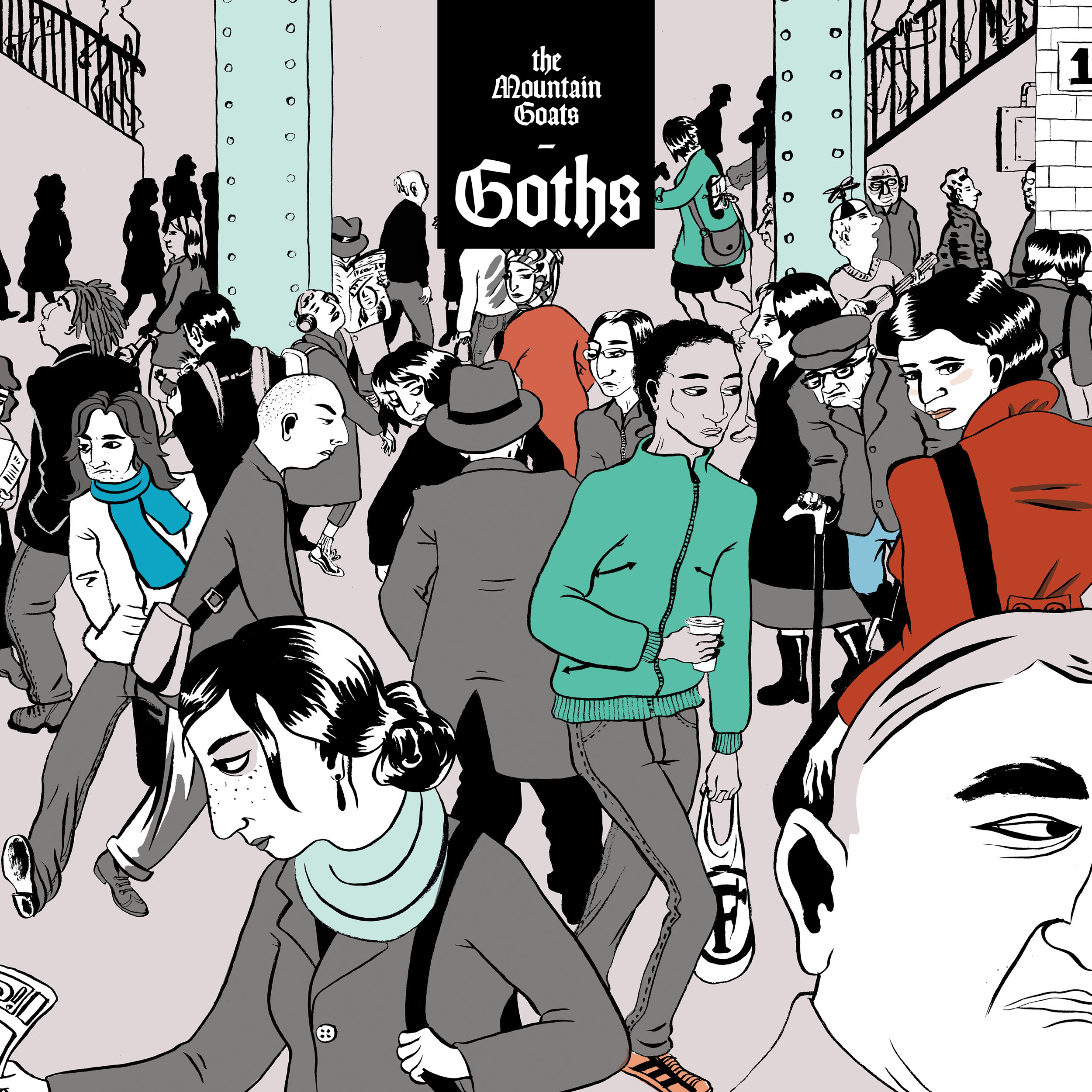The Mountain Goats
Goths
MERGE
7/10
John Darnielle’s made a career out of examining outcasts, loners, weirdos, and figures in need of the kind of solace that’s beyond the reach of conventional, ordinary people. Whether it’s the the pro-wrestling heroes in Beat the Champ, the institutionalized protagonist of his 33 1/3 installment on Black Sabbath’s Master of Reality, or even the childhood version of himself at the center of The Sunset Tree, Darnielle’s characters are broken, wounded people, but they find comfort and even redemption in escapism. Scripted grappling, heavy metal, video games—it’s all a means of soothing inner turmoil.
Goths is no different from other Mountain Goats albums in that respect. The title sums up the recurrent theme throughout the album: It’s a series of character sketches of gothic figures, all of which should ring fairly true to anybody who was ever a semi-troubled teenager. “Unicorn Tolerance” paints a scene with almost grotesque detail (“Drawn to the dark / Covered by the blood when possible”) while “Wear Black” turns its gothic mantra into a gospel celebration. Darnielle name-checks Siouxsie Sioux and Robert Smith in closing track “Abandoned Flesh,” and he nods to The Sisters of Mercy in “Andrew Eldritch Is Moving Back to Leeds.” Across the album’s twelve tracks, the subjects are treated with the affection and warmth that are something like a trademark for the singer/songwriter. More than anything, Goths seems to operate like an extended love letter to this oft-misunderstood subculture.
It does not, however, sound goth. It also doesn’t sound much like a Mountain Goats album. By and large, the guitars have been phased out, replaced with pianos, synthesizers, and horns, the end result sounding more like a vintage sophisti-pop record than anything resembling the post-punk culture it celebrates.
It’s an odd juxtaposition, but it’s not an unsuccessful one; a blatant stab at making a Cure soundalike record would probably have been too on the nose, after all. Instead, Darnielle and company are given the freedom to explore their subjects against a surprisingly pretty, breezy backdrop. From the outside, it’s a bit confusing perhaps, but it’s an emotional approach that makes Goths another strong entry in The Mountain Goats’ catalog.







